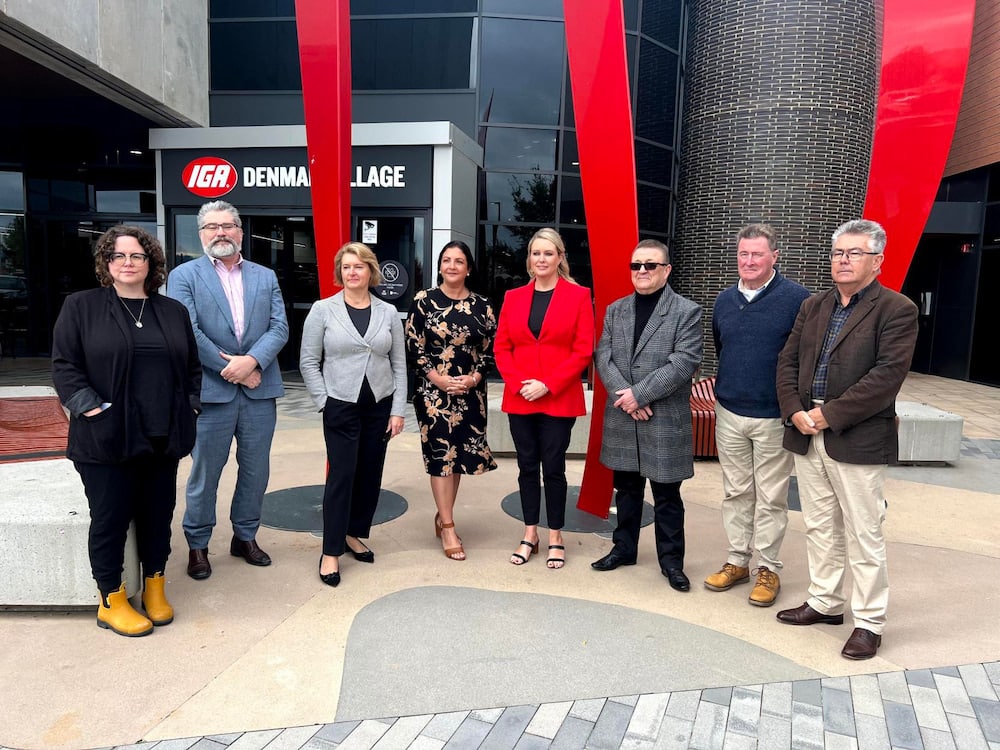Canberra’s newest region, the Molonglo Valley, has neither clubs nor poker machines – and while local Labor MLA Dr Marisa Paterson wants family-friendly venues for the urban development’s eventual 60,000 residents, she is determined those residents will not suffer from what she describes as “one of the most harmful forms of gambling”.
This morning, Dr Paterson launched a four-week campaign to ‘Keep Molonglo Pokie-Free’. Over the next month, the MLA will be at Denman Prospect and Coombs Shops, or going around the neighbourhoods, urging locals to pledge their support online, and asking them what Molonglo’s clubs should look like. Residents can also email her or call her office to express their views.
“If you play poker machines, you are more likely to experience gambling harm than any other gambling activity,” Dr Paterson said.
“I don’t believe that poker machines are the future. … We want to be proactive in the discussion around what is the future, how can clubs be supported, and how can they grow without pokies.”
She will then introduce legislation to ensure that there are no poker machines in Molonglo Valley. This reform, she said, will not affect existing clubs or the ACT Government’s introduction of betting limits.
- ACT Government wants to limit poker machine bets (29 April 2022)
“This campaign stems from research evidence that suggests that the closer you live in proximity to poker machines, the more likely you are to experience gambling harm,” Dr Paterson said.
She cited 2021 research by the Victorian Responsible Gambling Foundation which showed that people living within 250 metres of a gambling venue were 6 per cent more likely to gamble and 5 per cent more likely to experience financial hardship than those living more than 2 km away. Those with low incomes were more vulnerable.
“Poker machines are intentionally designed to addict,” said Kate Seselja, a gambling advocate with the Alliance for Gambling Reform. Their losses are disguised as wins, she argued, while gamblers can lose $10 every three seconds, or $6,000 in half an hour. “They do an incredible amount of financial harm in a very short period.”
Australians lose more money to gambling than any other country in the world – more than $25 billion every year, the Alliance’s CEO, Carol Bennett, said: “An enormous loss of income that affects individuals, families, workplaces, and communities.”
Canberrans, Ms Seselja said, lose $163 million a year, or half a million dollars a day. Problem gambling can lead to relationships breaking down, violence, financial stress, and suicide, Ms Bennett said.
“At a time when we have rising cost of living, huge pressures on Australian families and on budgets, this is just another issue that is causing enormous levels of harm,” Ms Bennett said.
Dr Paterson’s campaign follows her Bets Off Game On campaign to end gambling ads on television.
“This does not mean a community without clubs,” Dr Paterson emphasised. “In fact, I hope this is a pivotal shift in the ACT in looking to the future of clubs and what that looks like.”
Athol Chalmers, president of Canberra Community Clubs, congratulated Dr Paterson on her initiative in consulting the community.
“There are going to be 50,000 to 100,000 people out here in the next couple of decades, so what do they want if clubs are to move out here? Do they want the traditional club that has poker machines and other services, or do they want a club out here that doesn’t have poker machines?”
The clubs industry, he said, had been “built off the back” of gaming machines, but was trying to diversify itself and find other sources of revenue. “We’re still trying to work out how to do that. There’s childcare centres and gyms and the like, but it’s not easy.”
“That speaks volumes as an industry-led initiative,” Ms Seselja thought. “Once they become acutely aware of the harm that they are causing in their community, they’re not okay with it, and they want to make change. So [Dr Paterson’s campaign] is going that step further to look at how we can create clubs and connection without harm.”



